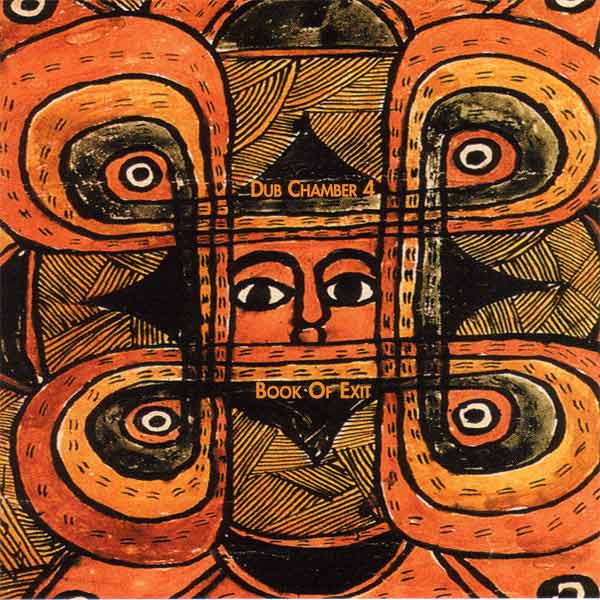BILL LASWELL/SACRED SYSTEM


1/ Ethiopia (Laswell,Shibabaw) 6.14
2/ Lower Gound (Laswell) 7.34
3/ Shashamani (Laswell) 7.29
4/ Bati (Laswell,Shibabaw) 7.47
5/ Land of Look Behind (Laswell) 6.45
6/ Jerusalem (Laswell,Shibabaw) 12.29
Created at Orange Music Studios, West Orange, New Jersey
Engineering and programming: Robert Musso
Assistant: James Dellatacoma
Produced by Bill Laswell
Material Inc/Design: John Brown
AXIOM: Bill Murphy
WordSound: Skiz Fernando
Bill Laswell: bass, guitar, keyboards; Ejigayehu "GiGi" Shibabaw: vocals; Karsh Kale: drums, tabla; Aiyb Dieng: percussion.
2002 - ROIR (USA), RUSCD 8280 (CD)
2003 - ROIR (USA), RUSLP 8280 (Vinyl)
Chris Nickson (courtesy of the All Music Guide website)
Mr. Bill Laswell, one of the world’s busiest producer/performers is at it again. This fellow’s got his fingers in so many diverse musical pies of his own and others (who’s baking he supervises) it’s dizzying – and therein lies the rub, bub. With all the stuff he puts out (under his own name or a nom de musique) - not even counting the myriad sessions he produces - Laswell may as well have his own Disc of the Month Club, the downside being all the output can’t all be good. But he’s thrown us a curve w/ his latest, and it’s a humdinger.
The latest in his Sacred System: Dub Chamber series, Book of Exit, is something of a radical departure from the others. They all feature dense, dark, jazz-, reggae- and Middle Eastern-inflected dub – similar approach here, but this ‘un lets a bit of light in. For one thing, it’s got a vocalist: the excellent Ethiopian singer “Gigi” Shibabaw, who has an entrancingly high, translucent, ethereal voice (a wee bit like Flora Purim), with strong Middle Eastern/North African overtones (though with a heart-rending touch of modal Irish-ness on the closer “Jerusalem”), though she does not overdo the melisma common to most Arabic singers. This stuff is as heavily rhythmic as before (re: the other fine discs on R.O.I.R.) and Laswell still uses the holy language of Dub to communicate, but it’s not as ominous and bass-heavy, more spacious and a little brighter. The instrumental sounds seem to gently, gracefully soar over (and occasionally down) yawning chasms. Laswell plays a few guitar lines encompassing shades of both West African guitar music and the late Jerry Garcia. You can actually listen to this one in the daylight, while the other volumes are definitely for night or darken rooms. (That’s not a put-down, btw.) This particular Book I’ve been able to sit through twice in one sitting, and there’s not many discs out there that have that power. Highly Recommended, this one is.
Mark Keresman (courtesy of the JazzReview.com website)
Bill Laswell is one of those "everywhere-at-once" musicians—producing, engineering and playing bass on countless albums for other artists, as well as maintaining an absurdly prolific release schedule of his own music. This album is mysteriously billed as 'Dub Chamber 4,' and since I haven't heard the first three Dub Chambers, I'm questoning my qualifications to write this review. However, this album does bear quite a resemblance Laswell's 'RadioAxiom: A Dub Transmission' album, a collaboration with Jah Wobble released early last year. Like that album, 'Book of Exit' is a highly polished series of superlative ethnic music workouts, utilizing heavily percussive dub as a backbone. This strategy has worked for Laswell many times before, and it works here again. Three of the six tracks contain beautiful, serpentine vocals by Ethiopian singer GiGi, who also sang on 'RadioAxiom'. GiGi's seductively epic vocal style works wonderfully in this context, but as Laswell's music always floats dangerously close to New Age/Worldbeat territory, it's difficult for me to completely surrender to its beauty. There is something a little enraging about white westerners who shamelessly co-opt the music of other cultures and blend them into a super hi-fi pastiche that loses its meaning and context, and serves as stereo test fodder for thousands of yuppie bachelor pads. The only things that save Laswell's music from being relegated to this hall of shame are his incredible grasp of composition, subtlety, and his ear for rich, captivating production. It is this amazing ear that transforms the opening track "Ethiopia"—a combination of cleanly plucked acoustic guitar, tabla, multitracked voice and echo chamber—from an easy cliché into an alarmingly beautiful experience. Most of the album follows this same basic formula, until things get a little bone-shaking and mind-bending towards the end, with the one-two punch of "Shashamani" and "Land of Look Behind." The album concludes with the long-form heroic pop of "Jerusalem," an achingly lovely paean to an ancient holy land, rife with war and division. GiGi sings mostly in English this time, and her sad and timely refrain of "Jerusalem, Jerusalem/You are so undone/Oh, what have you done...?" leave no doubt of this album's worthiness.
courtesy of the Brainwashed website